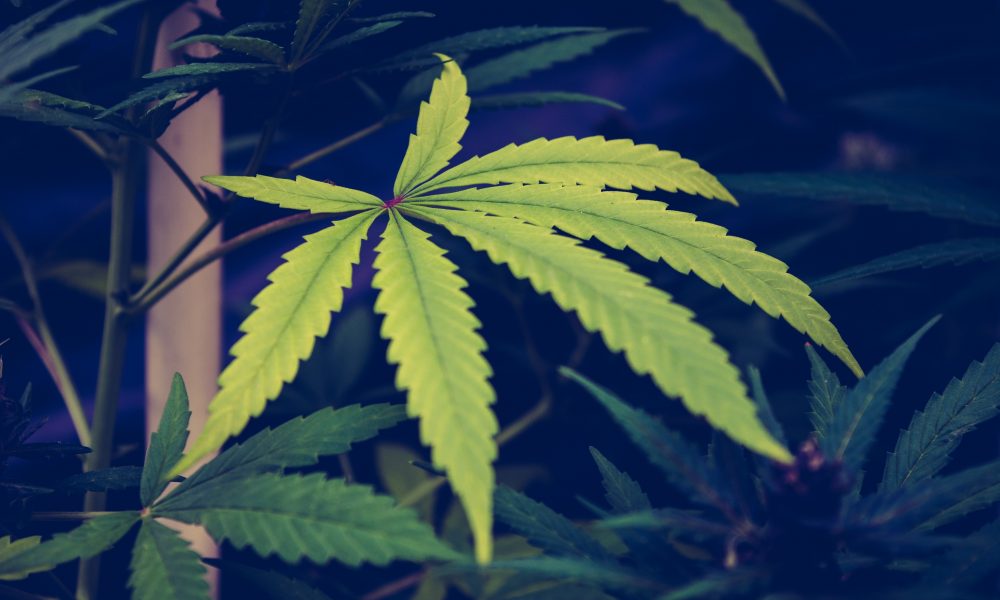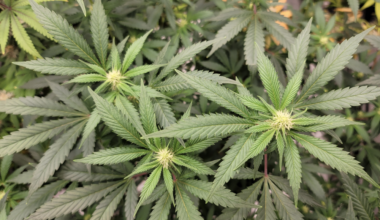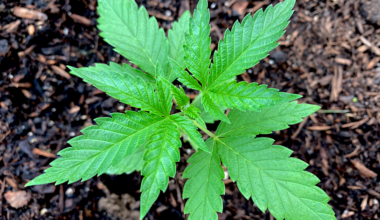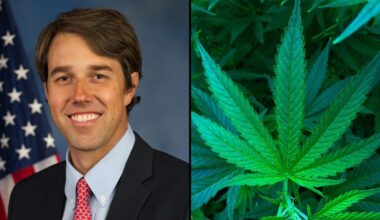The Delaware House of Representatives on Thursday rejected a bill to legalize and regulate marijuana sales, even though it got a majority of votes in support. The move comes one week after lawmakers sent the governor separate legislation to simply legalize cannabis possession.
The broader measure providing for a commercial marijuana market, got 23 votes in support and 15 against, but fell short of the three-fifths supermajority needed for passage.
Rep. Ed Osienski (D) is sponsoring both the simple legalization bill, HB 371, and the complementary measure to establish sales regulations, HB 372. He made the calculated decision to break them up after his earlier proposal that included both components was rejected in the House because it also failed to get a required three-fifths majority.
Because HB 371 on its own does not deal with raising revenue, it only needed a simple majority to pass. Osienski’s thinking has been that first moving non-commercial legalization through the legislature would put pressure on colleagues to approve the regulations bill with the higher vote threshold, rather than leave the market open—but that plan fell just short of success on Thursday.
When it became clear that the measure was going to fail, Osienski switched his own “yes” vote to “no” so that he will have the right to call for the measure’s reconsideration at a later date. With his support, the measure originally had 24 votes in favor—just one shy of the 25 needed for passage. That means he will only need to convince one more colleague—perhaps one of the three who either abstained or did not vote on this latest roll call—to support the measure to advance it to the Senate.
The bill “creates the legal framework to license and regulate a new industry that will create well-paying jobs for Delawareans while striking a blow against the criminal element which profits from the thriving illegal market for marijuana in our state,” Osienski said on the floor.
Prior to voting against final passage of the sales bill, the House adopted an amendment to clarify that the measure does not “impact or impose any requirement or restriction on employers with respect to terms and conditions of employment including but not limited to accommodation, policies or discipline.”
Another amendment to allow the city of Wilmington to set its own rules on where marijuana businesses can be located was also approved.
Even if Osienski’s two-track approach succeeded in the legislature, it could still run into a major roadblock on the governor’s desk.
Gov. John Carney (D), a rare example of a Democratic governor who continues to oppose legalization, said this week that he agrees that using cannabis shouldn’t be a “criminal offense,” but signaled that he still has concerns with the policy change and declined to say specifically whether he intends to sign either measure.
“It doesn’t have a regulatory piece that goes with it,” Carney said of the possession bill now before him. “So we’re looking at the same concerns that I’ve been articulating for some time with respect to public safety and its effect on our young people, and we’ll continue to keep those in mind.”
The governor has until May 31 to sign or veto the limited noncommercial bill, or allow it to take effect without his signature.
Here’s what Delaware’s HB 371 would do:
The bill would amend state statute by eliminating penalties associated with the possession of up to one ounce of marijuana by adults 21 and older.
It would further add a section stipulating that adults 21 and older could share up to an ounce of cannabis “without remuneration.”
That section clarifies that marijuana could not be “gifted” as part of a contemporaneous “reciprocal transition” or if the gift is contingent on a separate transaction for non-cannabis products or services.
Here are the main provisions of the complementary HB 372:
A marijuana commissioner would be appointed under the state Division of Alcohol and Tobacco Enforcement. The official would be tasked with regulating the industry and overseeing licensing of retailers, cultivators, manufacturers and laboratories.
Licenses would be granted through a scored, competitive process, with advantages given to those who pay workers a living wage, provide health insurance or meet certain other benchmarks.
After 19 months of the bill’s enactment, regulators would need to approve 30 retailer licenses, half of which would go to social equity applicants. Social equity applicants would be defined as entities majority-owned by people with past cannabis convictions or who live in an area disproportionately impacted by the drug war.
Those applicants would also be allotted one-third of the planned 60 cultivation licenses, one-third of manufacturing licenses and two of five licenses for testing laboratories. They would also qualify for reduced application and licensing fees as well as technical assistance from the state.
Retail marijuana sales would be subject to a 15 percent tax. No tax would be levied on medical cannabis sales.
Seven percent of the tax revenue would be used to support a new Justice Reinvestment Fund that would provide grants, services and other initiatives that focus on issues such as jail diversion, workforce development and technical assistance for people in communities that are economically disadvantaged and disproportionately impacted by the drug war. The money would also be used to help facilitate expungements.
Home cultivation for personal use would continue to be prohibited.
The legislation would allow individual municipalities to establish their own regulations for marijuana business operating times and locations, and they would also be allowed to ban cannabis companies altogether from their jurisdictions.
The bill provides explicit legal protections for state employees who work with the state-legal market. And it would also allow marijuana businesses to claim tax deductions at the state level—something they’re prohibited from doing at the federal level under a tax code known as 280E.
The tax-and-regulate bill is materially the same as the measure defeated in the state House in March.
Vermont lawmakers followed a similar approach to what Osienski is now pursuing by first passing a noncommercial legalization bill in 2018 and then following that up with separate legislation to tax and regulate sales in 2020.
Notably, Delaware House Speaker Pete Schwartzkopf (D), who was the sole Democrat in the House who voted against the earlier comprehensive legalization bill, signaled that he might be inclined to support a bill providing a regulatory infrastructure for marijuana commerce if the chamber voted to legalize possession and sharing. While he still voted against HB 371 earlier this month, he supported the sales bill on Thursday.
Possession of up to one ounce of marijuana is already currently decriminalized in the state, punishable by a civil fine and no threat of jail time under a law that was enacted in 2015. Carney signed a bill in 2019 that expanded the policy to apply to those under 21, too, though they face escalating civil penalties for subsequent offenses.
The governor said last year that he doesn’t support legalization in part because he believes marijuana can be a gateway drug to more dangerous illicit substances.
“We spend all this time and money to get people to stop smoking cigarettes and now we want to say it’s okay to just smoke marijuana recreationally,” he said at the time. “Look, I don’t want to sound like a prude about it, I just don’t think it’s a good idea.”
The governor also said that his assessment of other states that have enacted legalization is that “it just doesn’t seem to me to be a very positive thing from the strength of the community, of the economy in their states. Is it the worst thing in the world? No, of course not.”
An even earlier legalization bill from Osienski cleared committee last year. However, disagreements over social equity provisions stalled that version, keeping it from the floor. At the time, Osienski pledged to bring a revised bill for the 2022 session that could earn broad enough support to pass.
When the sponsor’s earlier bill was being considered last year, he said he was caught off guard when he was informed that the inclusion of a social equity fund meant the bill would require 75 percent of legislators in the chamber to approve it.
The lawmaker tried to address the problem through an amendment, but some members of the Black Caucus opposed the changes, and the measure failed.
Osienski has worked with the Black Caucus in the ensuing months to build support and move toward more passable legislation. And a clear sign of the progress is that Reps. Rae Moore (D) and Nnamdi Chukwuocha (D) signed on as cosponsors to the since-rejected bill after pulling their support for the 2021 version over equity concerns. They’re also listed as cosponsors for the new HB 372.
In 2019, Osienski was the chief sponsor of a legalization bill that cleared a House committee but did not advance through the full chamber. That bill would have allowed medical cannabis dispensaries to begin selling marijuana to adults 21 and older while the rest of the adult-use industry was still preparing to launch, a provision that was removed from later versions.
Four of the state’s six medical marijuana companies came out publicly against that change and testified in opposition to last year’s bill. In response, Delaware activists mounted a boycott against those operators.
Portions of the most recent version of the cannabis regulations bills on expungements were removed this session, as they were made redundant by the enactment of separate legislation last year.
Meanwhile, despite his wariness about adult-use legalization, Carney did previously sign two pieces of marijuana expungement legislation. In 2017 and 2018, a state task force met to discuss issues related to legalization, and the governor hosted a series of roundtable meetings about cannabis.
A legalization bill previously received majority support on the House floor in 2018, but it failed to receive the supermajority needed to pass.
An analysis from State Auditor Kathy McGuiness (D) released last year found that Delaware could generate upwards of $43 million annually in revenue from regulating marijuana and imposing a 20 percent excise tax. The legal market could also create more than 1,000 new jobs over five years if the policy is enacted, according to the report.
Medical Disclaimer:
The information provided in these blog posts is intended for general informational and educational purposes only. It is not a substitute for professional medical advice, diagnosis, or treatment. Always seek the advice of your physician or other qualified healthcare provider with any questions you may have regarding a medical condition. The use of any information provided in these blog posts is solely at your own risk. The authors and the website do not recommend or endorse any specific products, treatments, or procedures mentioned. Reliance on any information in these blog posts is solely at your own discretion.







